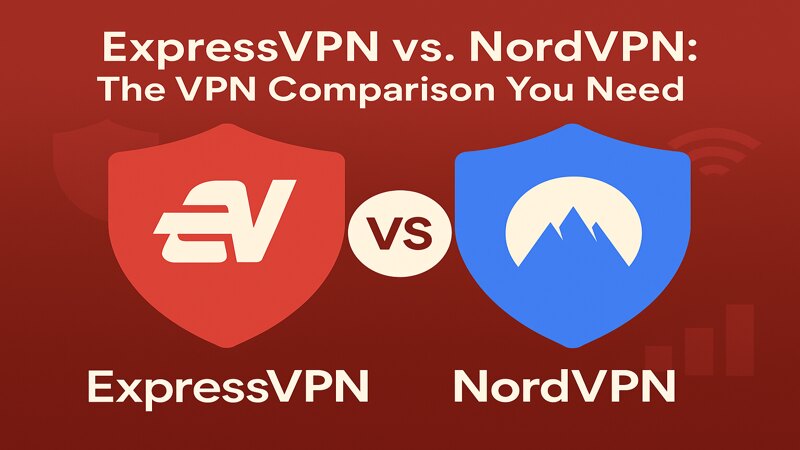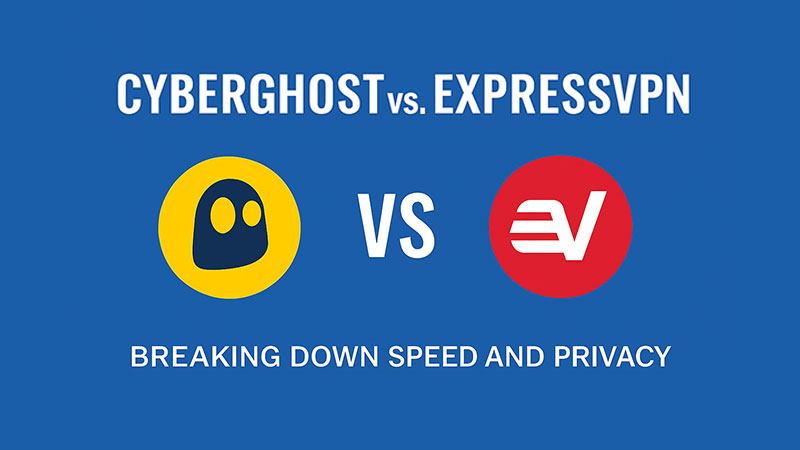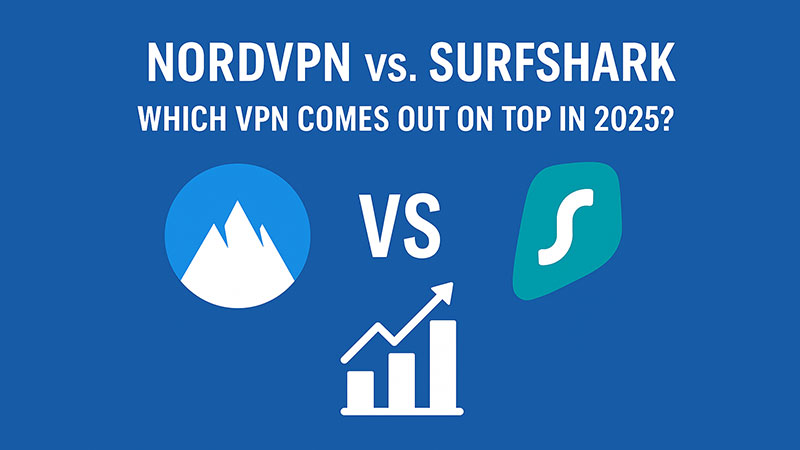When choosing a Best VPN Privacy is often the top priority. In today’s digital world—where cyber threats, government surveillance, and data harvesting are constant concerns—reliable VPN protection is no longer optional. It’s a necessity. ProtonVPN and NordVPN are two of the most trusted names in the cybersecurity space, both offering strong encryption, secure protocols, and powerful privacy tools. But when it comes to better privacy protection, the differences between them matter. In this detailed comparison, we’ll break down how each provider handles your data, keeps your identity anonymous, and protects your online activity—helping you decide which VPN is right for your needs. Whether you’re looking for the best VPN for iPhone free, VPN for Android, VPN for gaming, or the Best VPN for PC, this guide will help you make an informed choice.
ProtonVPN vs. NordVPN Privacy Features
A concise comparison of ProtonVPN and NordVPN, focusing on their privacy features, including jurisdiction, no-logs policies, encryption protocols, transparency, and advanced privacy tools to determine which VPN offers superior user protection.
Company Background and Jurisdiction
ProtonVPN – A Switzerland-Based VPN with Strong Privacy Laws
ProtonVPN is operated by Proton AG, the same privacy-focused organization behind ProtonMail. It is headquartered in Switzerland, a country renowned for its strict privacy laws and strong commitment to individual rights. Switzerland is not a member of the EU or any intelligence-sharing alliance such as the Five Eyes, Nine Eyes, or Fourteen Eyes. This jurisdiction provides ProtonVPN with a solid foundation to fight against unwarranted data requests, ensuring that user data stays private and secure. Additionally, Swiss law prohibits mandatory data retention, reinforcing ProtonVPN’s no-logs policy.
Is NordVPN Safe? Benefits of Its Panama Jurisdiction
NordVPN is based in Panama, another country that values internet freedom and does not participate in global surveillance networks. Panama has no mandatory data retention laws, which means NordVPN can legally maintain a strict no-logs policy without external pressure. This strategic location gives NordVPN a competitive privacy edge and insulates it from international interference. The company’s jurisdiction also aligns well with its promise of maintaining the highest levels of user confidentiality.
Winner: Tie — Both countries offer strong legal protection for user privacy and ensure a favorable environment for VPN services to operate without surveillance obligations.
No-Logs Policy
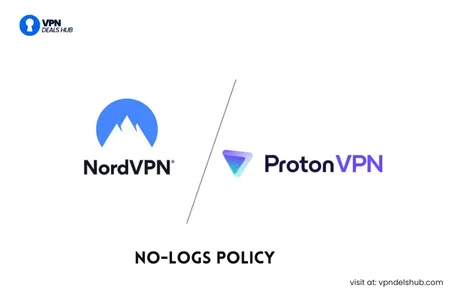
ProtonVPN – Independent Audits and Zero Data Retention
ProtonVPN takes a firm stance on protecting user data by enforcing a strict no-logs policy. Your online behavior, IP details, session times, and browsing habits remain completely unrecorded and untracked. What sets ProtonVPN apart is its commitment to transparency. It has undergone independent third-party audits to verify its no-logs claims, and its source code is open for public review. ProtonVPN also publishes regular transparency reports, outlining any legal requests it receives—and how none of those requests can lead to user data due to its log-free infrastructure.
NordVPN – Verified No-Logs and Trusted Auditors
NordVPN also operates under a stringent no-logs policy. The company has completed multiple third-party audits conducted by globally recognized firms like PricewaterhouseCoopers (PwC), which have validated its privacy promises. NordVPN does not track or log user traffic, IP addresses, or connection timestamps. In addition to its audits, NordVPN runs a bug bounty program and has implemented RAM-only servers, which automatically wipe all data on every reboot – making data retention virtually impossible. These steps reinforce its dedication to preserving user anonymity and data security.
Winner: Tie – Both services have robust, independently verified no-logs policies backed by audits and privacy-first infrastructure.

- 9.8
- The fastest and most reliable VPN on the market

- 9.5
- Low-cost VPN offering unrestricted device usage

- 8.2
- Affordable new VPN launched by top industry professionals
Encryption and Security Protocols
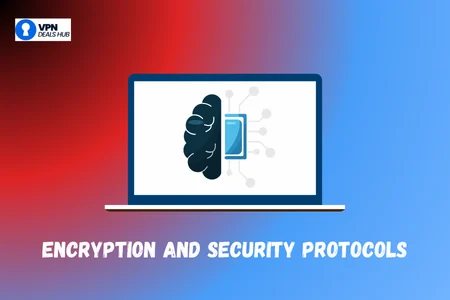
ProtonVPN – Secure Core and Multi-Hop Encryption
ProtonVPN uses AES-256 encryption, the gold standard in cybersecurity, combined with strong protocols like OpenVPN, IKEv2/IPSec, and WireGuard. What sets ProtonVPN apart is its unique Secure Core architecture, which routes your internet traffic through multiple hardened servers before it leaves the VPN network. These servers are located in privacy-friendly countries and are physically secured to defend against network-based attacks. This makes ProtonVPN especially appealing for users in high-risk environments like journalists, activists, or those living under oppressive regimes. In addition, ProtonVPN offers Perfect Forward Secrecy, ensuring that even if a session key is compromised, it cannot be used to decrypt past traffic.
NordVPN – Double VPN and Onion Over VPN
NordVPN also uses top-tier AES-256 encryption and supports OpenVPN, NordLynx (a WireGuard-based protocol), and IKEv2/IPSec. It features a Double VPN option, which routes your connection through two separate VPN servers for added anonymity. Another standout feature is Onion Over VPN, which combines the privacy benefits of the Tor network with the security of a VPN tunnel. This is particularly useful for users seeking extra layers of protection when accessing sensitive information. NordVPN also utilizes RAM-only servers, which automatically erase data with every reboot, significantly enhancing its security posture.
Winner: Slight Edge to ProtonVPN — Both are extremely secure, but ProtonVPN’s Secure Core and forward secrecy offer additional protection for users needing advanced anonymity.
Transparency and Open Source
ProtonVPN – Fully Open-Source Applications
ProtonVPN leads the industry when it comes to transparency. It has made all its apps open-source, which means anyone can inspect the code to verify there are no backdoors, trackers, or vulnerabilities. This level of openness builds trust with the privacy community and allows security experts to audit and improve the software continually. Additionally, ProtonVPN has passed several independent security audits and regularly publishes transparency reports that detail legal requests and how they were handled – always protecting user privacy.
NordVPN – Selective Open Tools and Ongoing Audits
NordVPN has made some strides toward transparency by open-sourcing specific tools and libraries and committing to regular third-party audits. However, its main apps remain proprietary, meaning the source code is not fully open to public review. Despite this, NordVPN has taken steps to build trust by working with reputable auditing firms and participating in bug bounty programs that encourage external security testing. These efforts reflect a commitment to transparency, though not quite to the level of ProtonVPN.
Winner: ProtonVPN — Full open-source code and regular transparency reports give ProtonVPN a clear edge for users who value visibility and trust in their VPN provider
Advanced Privacy Features
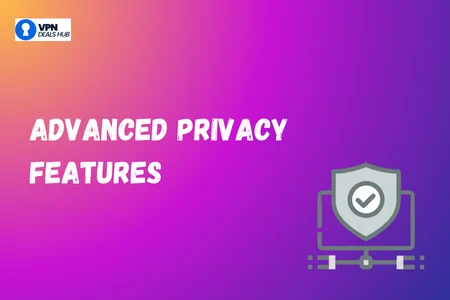
Comparison of Features – Kill Switch, DNS Protection, Multi-Hop, Ad Blockers
When it comes to advanced privacy tools, both ProtonVPN and NordVPN go beyond basic VPN services to offer specialized features aimed at improving security and anonymity.
ProtonVPN includes a Kill Switch that automatically blocks all network traffic if the VPN connection drops, preventing IP leaks. It also offers DNS leak protection and built-in NetShield, which blocks ads, trackers, and malware domains. One of its standout features is the Secure Core network, which enables multi-hop connections through privacy-friendly countries – ideal for users in high-censorship regions or those concerned about targeted surveillance.
NordVPN also features an automatic Kill Switch and DNS leak protection across all platforms. Its CyberSec feature blocks malicious websites, intrusive ads, and potential phishing threats. NordVPN stands out with specialized privacy modes like Double VPN, which encrypts your traffic twice, and Onion over VPN, which integrates the Tor network for additional layers of anonymity. Additionally, NordVPN supports split tunneling and has RAM-only servers, which erase data on every reboot for enhanced privacy.
ProtonVPN vs NordVPN Feature Table
Feature | ProtonVPN | NordVPN |
Kill Switch |
|
|
DNS Leak Protection |
|
|
Ad/Malware Blocker |
|
|
Multi-Hop |
|
|
Tor Integration |
|
|
RAM-Only Servers |
|
|
Split Tunneling |
|
|
Winner: Tie — Each has unique features: ProtonVPN excels in multi-hop privacy with Secure Core, while NordVPN offers more specialized modes like Onion over VPN and RAM-only servers.
User Control & Sign-Up Privacy
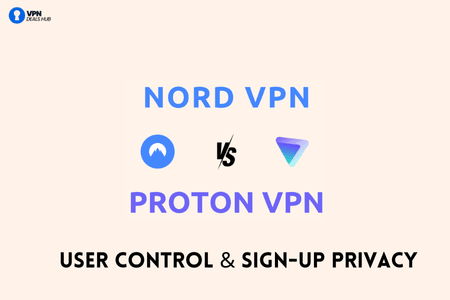
ProtonVPN – Anonymous Sign-Up and Crypto Payments
ProtonVPN stands out when it comes to giving users control over their personal data during the sign-up process. It allows users to register with minimal personal information – just an email address—and supports anonymous payment methods like Bitcoin. This means you can subscribe without revealing your real identity, an important feature for users in sensitive environments or those who simply value privacy. In addition, ProtonVPN does not require any mobile number or third-party verification, which ensures complete anonymity from the start.
Moreover, ProtonVPN offers user dashboard controls that allow you to disable tracking, delete your account permanently, or manage subscriptions without third-party involvement. These options give you more autonomy and minimize the exposure of personal data across platforms.
NordVPN – Secure Sign-Up with Email Required
NordVPN requires users to register with a valid email address, and while it does accept cryptocurrency, the process is not entirely anonymous due to integrations with third-party payment platforms. Unlike ProtonVPN, NordVPN may collect minimal diagnostic data for service improvement purposes—although this data is anonymized and users can opt out in some cases. While the sign-up process is secure, it lacks the privacy-first flexibility offered by ProtonVPN.
On the user control front, NordVPN has a well-designed dashboard and allows for easy account management. However, the lack of anonymous sign-up options makes it less appealing for users with strict privacy demands.
Winner: ProtonVPN — More flexible and anonymous registration process, plus better user control over account data and payments.
Which VPN Offers Better Privacy?

Both ProtonVPN and NordVPN are leaders in the VPN space, offering high-grade encryption, verified no-logs policies, and strong protection features. However, when it comes to privacy-first architecture, anonymity, and open-source transparency, ProtonVPN stands out as the clear winner for users who want the most uncompromising privacy protection.
ProtonVPN’s Swiss jurisdiction, anonymous sign-up options, full open-source codebase, and unique Secure Core feature make it ideal for users concerned about surveillance or those living in regions with strict internet controls. These elements make ProtonVPN not only a private VPN but one of the most trustworthy choices for journalists, activists, and privacy advocates.
That said, NordVPN holds its own with powerful features like Double VPN, Onion Over VPN, and RAM-only servers, offering excellent security while maintaining high speeds. It’s a great all-round VPN with a wider global presence and feature set that appeals to both casual and power users.
In conclusion, if privacy and anonymity are your top priorities, go with ProtonVPN. If you want a balanced VPN for streaming, gaming, and privacy, NordVPN may suit you better.
No matter your choice, both are excellent for a range of use cases whether it’s the best VPN for PC, VPN gaming, or a VPN app for iPhone.
- Choose ProtonVPN for: extreme privacy, open-source transparency, and Swiss-based legal protections.
- Choose NordVPN for: strong privacy with feature-rich performance and broader compatibility.
Both ProtonVPN and NordVPN are excellent choices for privacy-conscious users, but if your priority is maximum anonymity, open-source transparency, and advanced jurisdictional protection, ProtonVPN is the better option.
However, if you’re looking for a balance between speed, privacy, and additional features like Onion over VPN or Double VPN, NordVPN still remains a top-tier contender.
Whether you’re streaming with the Best VPN for Netflix, browsing safely with a VPN app for iPhone, or looking for the Best VPN torrenting, both services deliver solid performance.
Frequently Asked Questions (FAQs)
Is ProtonVPN better than NordVPN for privacy?
Yes, ProtonVPN has a slight edge in privacy due to its Swiss jurisdiction, open-source apps, and anonymous sign-up options.
Can I use either VPN for Netflix or streaming?
Yes, both ProtonVPN and NordVPN support Netflix. That said, NordVPN offers a larger number of servers specifically tailored for streaming.
Which VPN is better for gaming?
NordVPN generally provides faster speeds and lower latency, making it a better choice for VPN gaming.
Do both ProtonVPN and NordVPN support torrenting?
Yes, both services allow P2P and torrenting, but NordVPN has more specialized servers for this purpose.
Can I use these VPNs on my phone or tablet?
Yes, Both offer apps for Android and iPhone/iPad, making them some of the best VPNs for mobile use.
Are there free versions of ProtonVPN or NordVPN?
ProtonVPN offers a free version with limited servers. NordVPN does not offer a free plan, but provides a 30-day money-back guarantee.
Which VPN is better for use in China?
ProtonVPN can work in China using Stealth protocols, but NordVPN’s obfuscated servers are often more consistent.


 Yes
Yes Not integrated
Not integrated